A visitor from the Ministry
 Today IBEC welcomed the new Director General of Research, Development, and Innovation of the Spanish Ministry of Science, Innovation and Universities (MINECO) to meet some of the group leaders and hear about their research.
Today IBEC welcomed the new Director General of Research, Development, and Innovation of the Spanish Ministry of Science, Innovation and Universities (MINECO) to meet some of the group leaders and hear about their research.
Dr. Teresa Riesgo Alcaide met IBEC’s directors and was taken on a tour of the laboratories of Samuel Sánchez, Josep Samitier, Xavier Trepat and Elena Martínez, as well as viewing IBEC’s 3D bioprinting facilities.
Dr. Riesgo was in town for the EIT Health Partner Assembly at Caixa Forum, an important event on the calendar for the network.


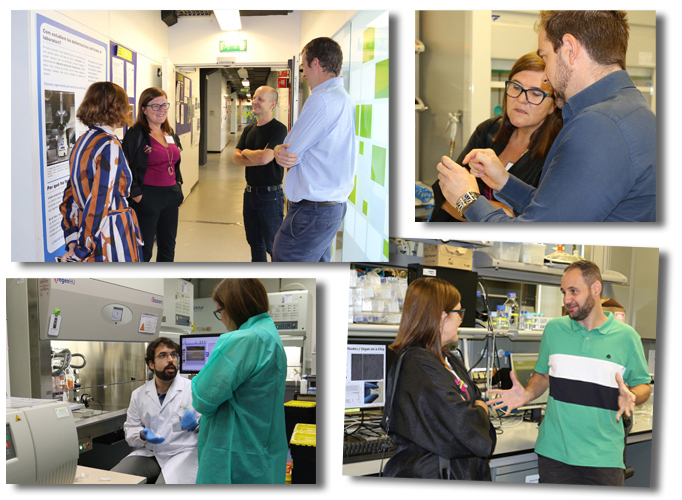 Today IBEC welcomed the new Director General of Research, Development, and Innovation of the Spanish Ministry of Science, Innovation and Universities (MINECO) to meet some of the group leaders and hear about their research.
Today IBEC welcomed the new Director General of Research, Development, and Innovation of the Spanish Ministry of Science, Innovation and Universities (MINECO) to meet some of the group leaders and hear about their research.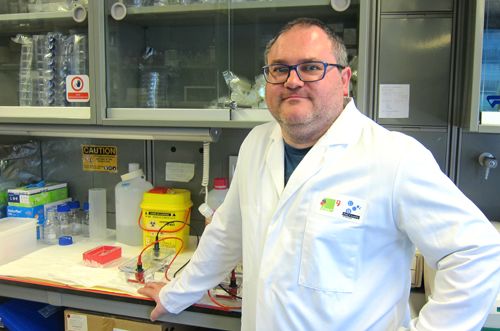
 IBEC is celebrating its sixth Caixaimpulse success, with Eduard Torrents’ project ‘BiofilmChip: personalized treatment for biofilm infections’ winning support in the programme’s fourth round.
IBEC is celebrating its sixth Caixaimpulse success, with Eduard Torrents’ project ‘BiofilmChip: personalized treatment for biofilm infections’ winning support in the programme’s fourth round.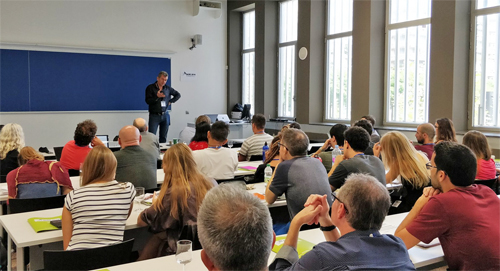
 More than thirty students from all over the world have arrived at the UPC Campus Diagonal-Besòs for the 11th Barcelona Cognition Brain and Technology summer school (BCBT2018), an annual event co-organised by IBEC’s SPECS group.
More than thirty students from all over the world have arrived at the UPC Campus Diagonal-Besòs for the 11th Barcelona Cognition Brain and Technology summer school (BCBT2018), an annual event co-organised by IBEC’s SPECS group.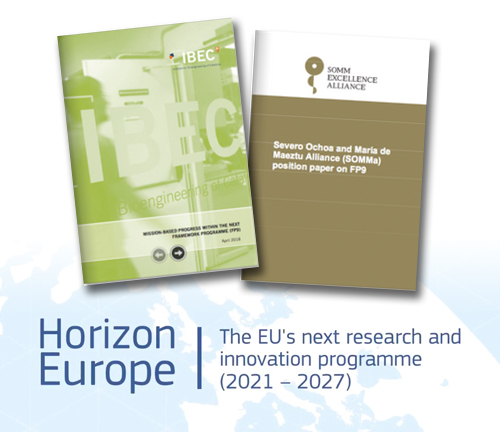
 The European Commission has published its proposal for the next framework programme in research and innovation,
The European Commission has published its proposal for the next framework programme in research and innovation, 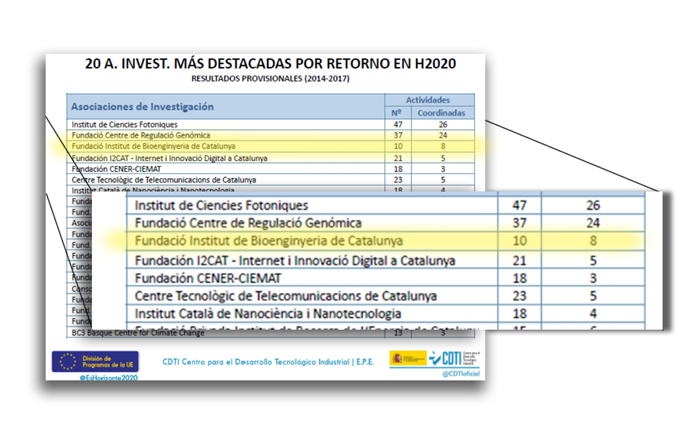
 IBEC is listed as an ‘outstanding’ Spanish research centre for Horizon 2020 funding in a recent report published by the Centro para el Desarrollo Tecnológico Industrial (CDTI).
IBEC is listed as an ‘outstanding’ Spanish research centre for Horizon 2020 funding in a recent report published by the Centro para el Desarrollo Tecnológico Industrial (CDTI). 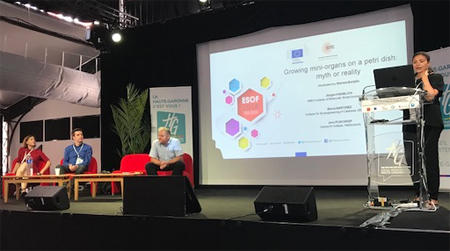
 This week IBEC group leader Elena Martinez is in Toulouse for the EuroScience Open Forum (ESOF), the largest interdisciplinary science meeting in Europe, where she is taking part as a speaker.
This week IBEC group leader Elena Martinez is in Toulouse for the EuroScience Open Forum (ESOF), the largest interdisciplinary science meeting in Europe, where she is taking part as a speaker.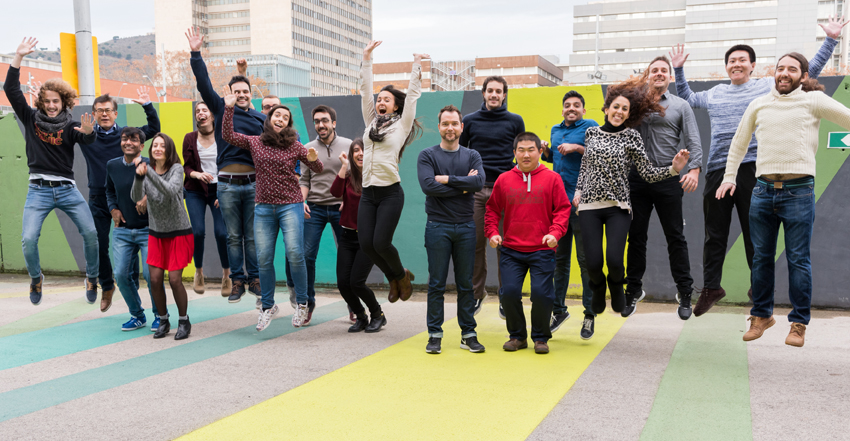
 An IBEC project has won funding from the BBVA Foundation under its ‘Ayudas a Equipos de Investigación en Biomedicina’ funding programme.
An IBEC project has won funding from the BBVA Foundation under its ‘Ayudas a Equipos de Investigación en Biomedicina’ funding programme.
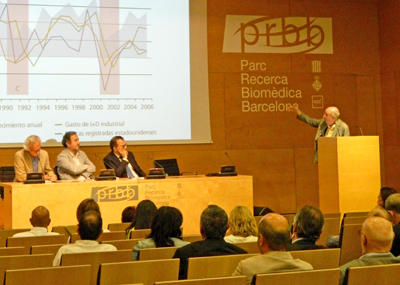 Last month IBEC Director Josep Samitier was one of the panelists in a round table organised by the Cercle de Salut, an association devoted to improving the health system so that it may respond adequately to the challenges posed by society.
Last month IBEC Director Josep Samitier was one of the panelists in a round table organised by the Cercle de Salut, an association devoted to improving the health system so that it may respond adequately to the challenges posed by society.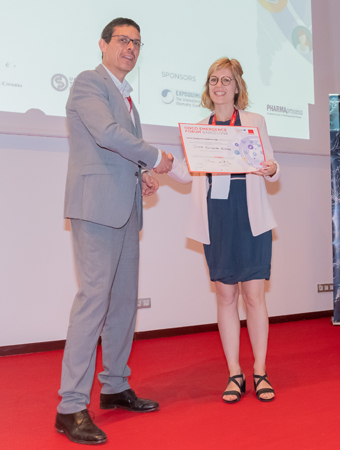
 An IBEC project pitch won third prize in a Technology Transfer Competition at last week’s Onco Emergence Forum.
An IBEC project pitch won third prize in a Technology Transfer Competition at last week’s Onco Emergence Forum.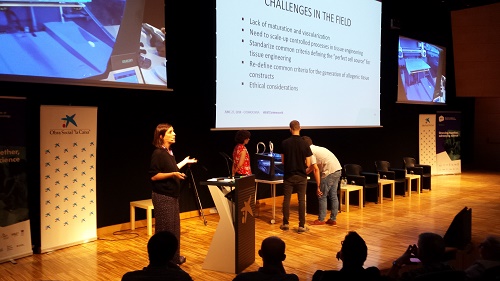
 Today more than 300 researchers are meeting at CosmoCaixa to debate the latest scientific advances in cutting-edge fields at the yearly conference of the Barcelona Institute of Science and Technology (BIST).
Today more than 300 researchers are meeting at CosmoCaixa to debate the latest scientific advances in cutting-edge fields at the yearly conference of the Barcelona Institute of Science and Technology (BIST).